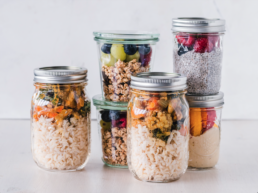By Karalyn Cass, First Mile Care DPP Coach and program coordinator
Stress and stressful events are part of modern life. We acknowledge it, and sometimes even equate it with success: Ever bragged about working 60+ hours a week just to get that project completed? Stress has its purpose — like when you have to slam on the brakes to avoid a collision or whip your hand from a hot stove to avoid a burn. But what happens when there is too much stress in your life?
Since March is National Nutrition Month, it’s a good time to revisit some useful resources about nutrition and healthy eating from First Mile Care Diabetes Prevention Program (DPP) coaches and other expert voices.
Healthy living has never been more important. The Centers for Disease Control and Prevention (CDC) now estimates there are 96 million American adults living with prediabetes in 2022 — that’s 38% of people over age 18, or more than 1 in 3 — yet nearly 90% don’t even know they have it.
First Mile Care-certified DPP coaches help participants develop strategies for making more informed choices to eat healthily at home and away, along with being more physically active, managing stress, and coping with their other challenges in making healthy choices that can last a lifetime. One goal of the DPP is to create realistic eating habits that you can stick with for the long-term without having to give up things you love.
For example, Roberta Varnado completed the First Mile Care Diabetes Prevention Program last October. She says, “Coach Robert McNeill taught me how to pay attention to food labels and about learning to make substitutions. I eat smaller portions and choose something filling and satisfying. For example, I used to eat pastries with my morning coffee, but now I find that I’m happy with something that has protein, like a whole egg or scrambled eggs, or avocado toast. I don’t miss my doughnuts.“
Check out some articles linked below that appear on the First Mile Care blog, from our webinar series on Diabetes Prevention in Action, and on general media and government websites. You’ll find even more recommended resources in an article that we published last year for National Nutrition Month.
1. Coach Kathy Gregory offered tricks for shopping for healthier items in the grocery store to make sure you get a “rainbow of produce” in your diet.
2. The non-profit Environmental Working Group (EWG) website publishes useful information for consumers about pesticide levels on fruits and vegetables, so you can adjust your choices when shopping for fresh produce. It’s known for its Dirty DozenTM and Clean 15TM lists.
3. There isn’t one magic food for good nutrition, said Coach Jenny Fowler in an Incredible Edibles article on the world’s healthiest foods, so she recommends eating a variety of cruciferous vegetables, berries, and wild fish.
4. The DPP emphasizes learning to make healthy food choices as part of a sustainable healthy lifestyle, rather than focusing on short-term weight loss. Coach Kathy Gregory looked at the pros and cons of some current popular diets in a webinar.
5. Confused about food groups? The National Institute on Aging (NIA), part of the Department of Health and Human Services (HHS), has an informative website and free brochures.
6. Getting adequate hydration is not limited to water. Coach Sandra Huskey offered an instructive webinar on jazzing up your water intake and making healthy smoothies.
7. Coach Jenny Fowler discussed with the Badass Body Project why we crave junk food high in fats and sugars when we’re feeling stressed.
8. One of the most comprehensive government websites for nutrition information is the Department of Agriculture (USDA)’s Nutrition.gov. It updates its dietary guidelines for Americans every five years.
9. Several First Mile Care coaches shared their tips on diet and nutrition, fitness, and self-care with Everyday Health’s TIPPI online database.
10. The Houston Chronicle talked with Al Cisneros about how he learned to make smart choices to lose weight and lower his A1c by working with Coach Sandra Huskey and First Mile Care.
To learn more about how you can benefit from the First Mile Care Diabetes Prevention Program, take the prediabetes risk test and get started today!



